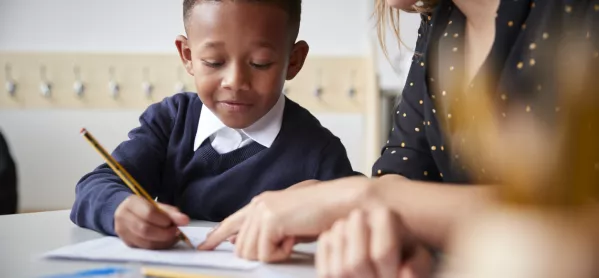- Home
- Teachers: reopening advice for early years ‘unworkable’
Teachers: reopening advice for early years ‘unworkable’

Government guidance on reopening schools to more pupils in the early years is “unworkable”, teachers have said.
In a joint statement signed by the NEU teaching union and a host of early years experts, it is claimed that the latest advice for welcoming the youngest children back to school is “inadequate”, and the workload expected of staff is “unsustainable”.
The signatories claim that there are “numerous specific instances where the guidance is confusing, contradictory, or unworkable”.
Independent Sage: School openings on Monday not safe
Gibb: Clinically vulnerable teachers ‘safe in schools’
Senior scientist: 1 June risk ‘too high’ if you live with grandparents
“For example, the ‘bubble’ concept of keeping a small number of children together is intended to minimise social contact and transmission of infection,” the statement says.
“The guidance says that keeping the group to a maximum size of 8 is ‘preferable’, yet ‘no more than 16’ in early years settings.
“In Reception classes, having one adult to 15 or 16 children is too large a group to be manageable or to contain infection.
“The bubble concept also breaks down where members of staff work part-time, children attend part-time, or attend more than one setting, since staff working across a number of bubbles or children participating in different groups increases contacts exponentially.”
It adds that the guidance on personal protective equipment is “also inadequate”, as social distancing as a protective measure will be “impossible with young children”.
The government planning guide for early years settings states that staff should “consider how floor space, rooms and outdoor space can be organised to ensure physical distancing between staff and between groups of children”.
“Area dividers may help to keep children in different parts of the room, and floor markings could be helpful in assisting staff with keeping groups apart,” it adds.
The signatories also argue that the workload expected of early years staff is “unsustainable”.
The statement says: “Maintaining integrity of the small groups will militate against breaks, while staff are still expected to do a double job of considering how to ‘continue to support the learning of children who do not attend settings, including how these children can maintain contact with their key person and peers through the early years setting, and how parents and carers can be supported to provide a positive learning environment at home’.”
Other key points made in the statement include:
- It is impossible to take some of the suggested steps - such as implementing new ways of working with staffing, environment, resources and routines - within the government’s timescale.
- Teachers are being placed in the position of making decisions for which they are not qualified, and where their legal liability may come into question.
- There is a danger that the regime of social distancing, strict adherence to grouping, and restricting children’s play and active learning could have a detrimental effect on their development and learning. It may also increase children’s anxiety, feelings of separation and frustration.
- The guidance points to a rushed return before the schools and early years settings are ready, and before assurance of maximum safety can be given. Putting children’s wellbeing and learning at the centre of decision making would result in very different arrangements.
The Department for Education (DfE) said it has engaged closely with the NEU and early years organisations throughout the pandemic, and will continue to do so.
A DfE spokesperson said: “Our planning guides have been informed by feedback from sector groups and staff on the ground in settings that have remained open for vulnerable children and critical workers throughout this pandemic.
“The safety and wellbeing of both children and adults are central to these plans and we have worked closely with Public Health England on the protective measures that should be in place in early years settings.
“Additional reassurance for parents, carers and staff has also been provided by the expansion of the government’s testing programme to the youngest children, ahead of more children returning to settings.”
Keep reading for just £1 per month
You've reached your limit of free articles this month. Subscribe for £1 per month for three months and get:
- Unlimited access to all Tes magazine content
- Exclusive subscriber-only stories
- Award-winning email newsletters



